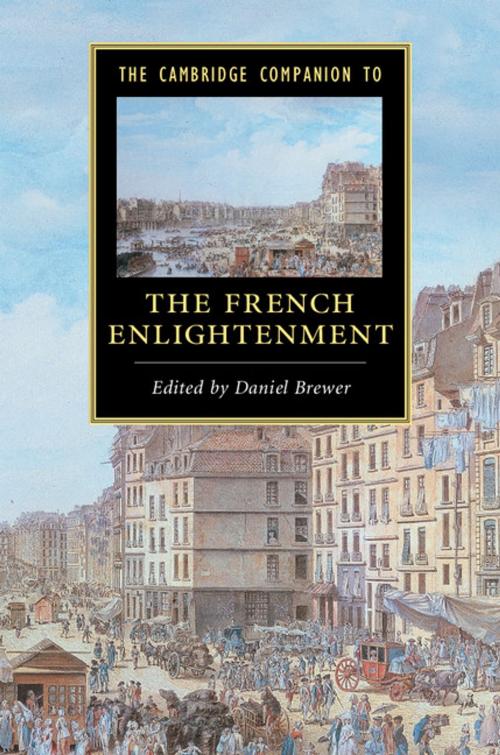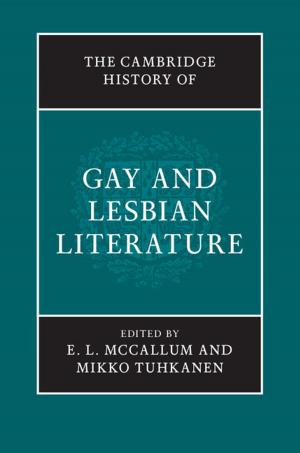The Cambridge Companion to the French Enlightenment
Fiction & Literature, Literary Theory & Criticism, European, Nonfiction, History| Author: | ISBN: | 9781316188811 | |
| Publisher: | Cambridge University Press | Publication: | October 27, 2014 |
| Imprint: | Cambridge University Press | Language: | English |
| Author: | |
| ISBN: | 9781316188811 |
| Publisher: | Cambridge University Press |
| Publication: | October 27, 2014 |
| Imprint: | Cambridge University Press |
| Language: | English |
The Enlightenment has long been seen as synonymous with the beginnings of modern Western intellectual and political culture. As a set of ideas and a social movement, this historical moment, the 'age of reason' of the seventeenth and eighteenth century, is marked by attempts to place knowledge on new foundations. The Cambridge Companion to the French Enlightenment brings together essays by leading scholars representing disciplines ranging from philosophy, religion and literature, to art, medicine, anthropology and architecture, to analyse the French Enlightenment. Each essay presents a concise view of an important aspect of the French Enlightenment, discussing its defining characteristics, internal dynamics and historical transformations. The Companion discusses the most influential reinterpretations of the Enlightenment that have taken place during the last two decades, reinterpretations that both reflect and have contributed to important re-evaluations of received ideas about the Enlightenment and the early modern period more generally.
The Enlightenment has long been seen as synonymous with the beginnings of modern Western intellectual and political culture. As a set of ideas and a social movement, this historical moment, the 'age of reason' of the seventeenth and eighteenth century, is marked by attempts to place knowledge on new foundations. The Cambridge Companion to the French Enlightenment brings together essays by leading scholars representing disciplines ranging from philosophy, religion and literature, to art, medicine, anthropology and architecture, to analyse the French Enlightenment. Each essay presents a concise view of an important aspect of the French Enlightenment, discussing its defining characteristics, internal dynamics and historical transformations. The Companion discusses the most influential reinterpretations of the Enlightenment that have taken place during the last two decades, reinterpretations that both reflect and have contributed to important re-evaluations of received ideas about the Enlightenment and the early modern period more generally.















